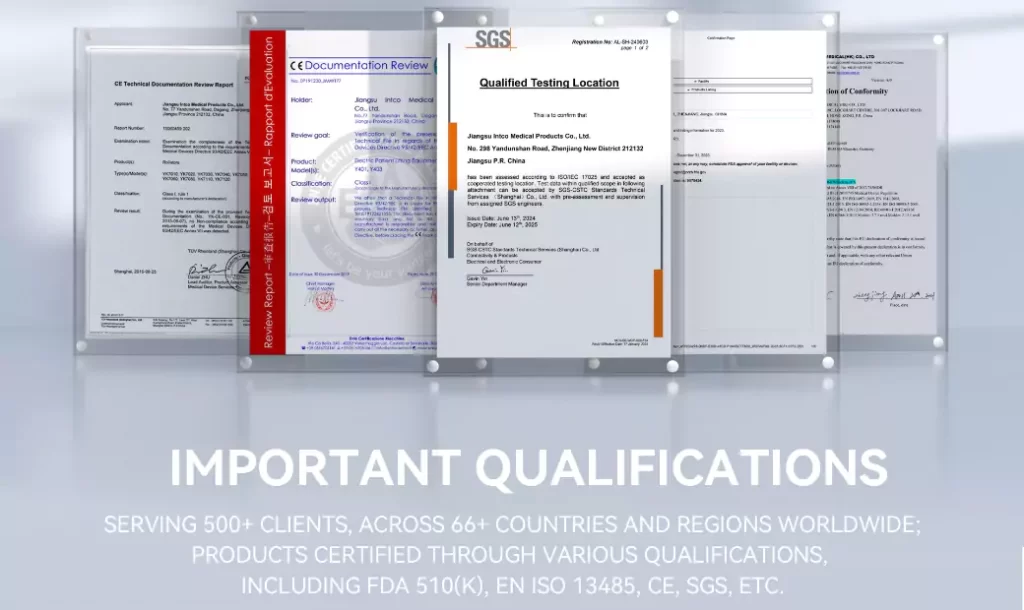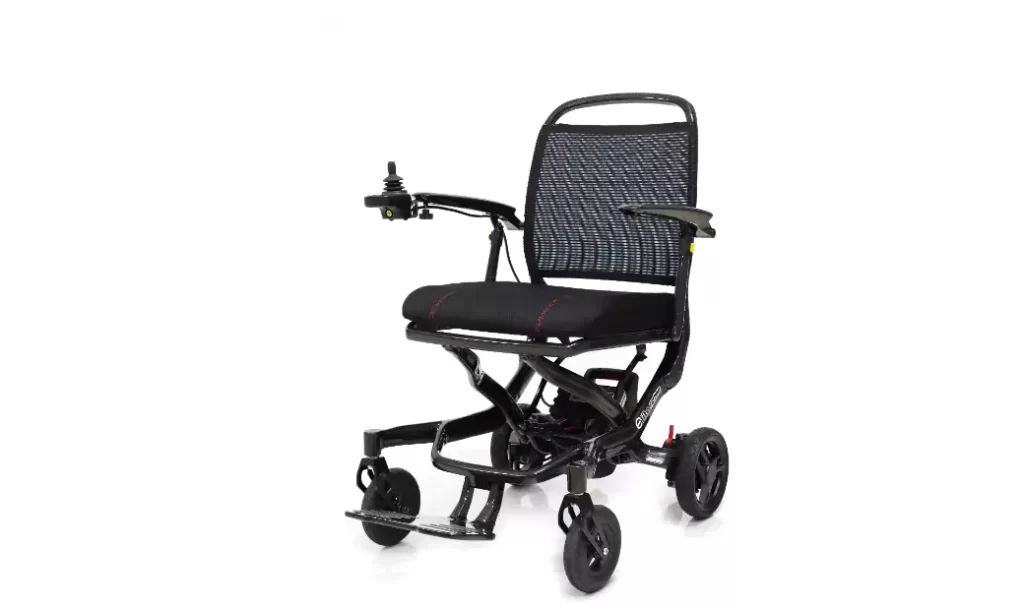Contact Us
How INTCO Wheelchairs Compete in the Global Mobility Market
2025-10-11
The global mobility market is evolving fast: aging populations, rising chronic conditions, advances in materials and control systems, and growing attention to inclusive design are reshaping demand. Within this dynamic landscape, INTCO wheelchair products—offered under the INTCO Medical brand—position themselves as factory-direct solutions that combine competitive pricing, broad model coverage (manual, power and pediatric wheelchairs), and a growing focus on lightweight materials and user-centred features.

Product breadth and targeted innovation
INTCO’s product portfolio spans manual wheelchairs, power wheelchairs, mobility scooters, rollators, and related rehabilitation equipment. The range allows the company to address multiple customer segments—from low-cost institutional buyers to end users seeking more advanced, portable solutions. INTCO’s product pages and recent product news highlight a move into lightweight and carbon-fibre construction for power chairs — exemplified by the E-LITE model, which emphasizes portability, foldability, and a carbon-fiber frame for lower weight without sacrificing strength.
Key product types that help INTCO compete:
-
Value manual wheelchairs — robust, foldable steel or aluminum frames for hospitals, nursing homes, and bulk procurement.
-
Lightweight / ultralight wheelchairs — designs intended for frequent transport and active users.
-
Power wheelchairs & scooters — from basic transport power chairs to higher-end models with BLDC motors and longer battery range (E-LITE is an example).
-
Accessories & seating systems — cushions, anti-tippers, quick-release wheels and modular parts to support customization and comfort.
By offering multiple tiers of product (basic → mid → premium), INTCO can participate in bids for volume procurement while also attracting retail and distributor channels seeking higher-margin models.
Quality, testing and standards — why compliance matters
Competing internationally requires more than a low price: it requires demonstrable safety and performance. Internationally recognized standards—particularly the ISO 7176 series for wheelchairs and voluntary standards coordinated by RESNA in the U.S.—set the technical bar for static stability, strength, seating, and dimensions. Manufacturers that design to ISO 7176 test methods and RESNA/ANSI guidance can reduce trade friction and increase confidence among clinical buyers and distributors.
-
Design for testability: using chassis, fasteners, and materials that pass static, impact and fatigue tests (e.g., ISO 7176-8).
-
Labeling & documentation: providing clear spec sheets, maintenance instructions, and test reports helps institutional purchasers meet procurement rules and hospital technical reviews.
-
Third-party testing & certification: obtaining independent lab reports (or test summaries) accelerates adoption in regulated markets.

Cost structure and supply-chain advantages
INTCO competes strongly on price because of integrated manufacturing scale and supply-chain control. For institutional buyers—hospitals, assisted-living networks, NGOs and government tenders—unit cost is often decisive. INTCO’s ability to offer factory pricing and OEM/ODM services helps it win bulk contracts. These cost advantages are paired with flexible MOQ options for international distributors who need to test market demand with smaller initial orders.
Market positioning by region & channel
INTCO’s global strategy can be mapped by channel and region:
-
Emerging markets & NGOs: compete on value, durability, and the ability to supply large volumes quickly for humanitarian and government mobility programs.
-
Developed markets (distribution/retail): compete on product differentiation (lightweight models, design, comfort) and by supporting certifications/test data required by hospitals and insurers.
-
OEM/ODM channel: providing co-branding, private label and tailored specifications for clients who want their own brand but need factory expertise.
For each region the mix of price, documentation, and service must be adjusted. For example, in markets with stringent procurement standards, published ISO/RESNA test data and robust warranty terms are decisive. In cost-sensitive markets, durability and low-cost serviceability matter most.
Product introductions
E-LITE — Carbon-fiber power wheelchair: foldable, ultra-light, focused on portability and urban mobility.
DOLY — Sleek design manual/power variant: modern aesthetics with removable colorful sandwich cushions for retail appeal.
GEMINI & STAR — Large-size mobility scooter and power wheelchair platforms targeted at B2B contracts and users requiring higher weight capacities and comfort features.
Conclusion
INTCO wheelchair offerings combine wide product coverage with factory-level pricing and increasing emphasis on lightweight, user-friendly designs. To grow global market share sustainably, INTCO’s competitive playbook should pair its manufacturing and cost advantages with stronger standards documentation, distributor training, and service-focused delivery—aligning with global guidance on wheelchair provision and established technical standards. By doing so, INTCO can move from low-cost supplier to trusted global partner in mobility solutions.
References
-
World Health Organization. (2023). Wheelchair provision guidelines. World Health Organization. Retrieved October 11, 2025, from https://www.who.int/publications/i/item/9789240074521
-
International Organization for Standardization. (2014). ISO 7176-1:2014 — Wheelchairs — Part 1: Determination of static stability (and related parts). ISO. Retrieved October 11, 2025, from https://www.iso.org/standard/56817.html
-
RESNA. (n.d.). Wheelchair Service Provision — Resources & Standards. Rehabilitation Engineering and Assistive Technology Society of North America (RESNA). Retrieved October 11, 2025, from https://www.resna.org/AT-Standards/Wheelchair-and-Related-Seating



